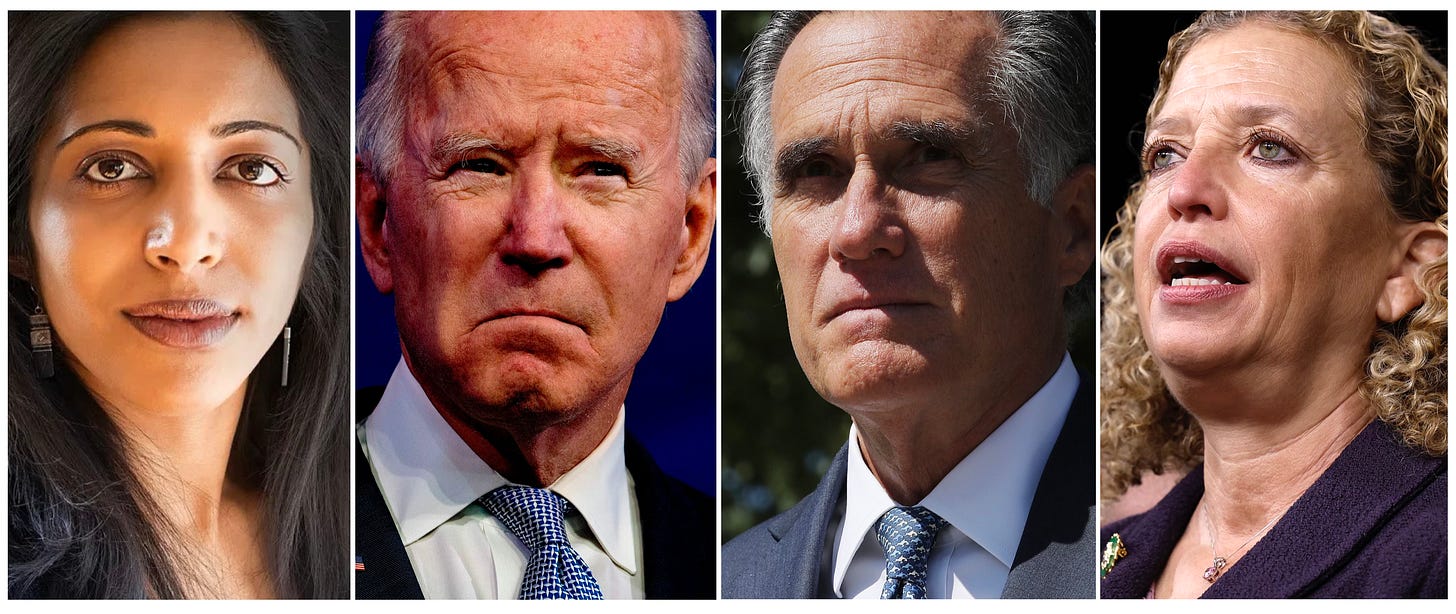False Claims Of “Insurrection,” Minutes After January 6 Capitol Riot, Suggest Disinformation Plot
Key figures promoted “coup attempt” narrative before January 6

Former President Donald Trump, who leads the polls to become the Republican Party’s next presidential nominee, has now been denied his place on the ballot in two different states: Colorado and Maine, as a consequence of courts and state officers claiming that he is ineligible to the presidency thanks to a provision in the 14th amendment that bars individuals who “engaged in insurrection” from serving as president.
To many Americans, it’s simply a given that Trump engaged in insurrection. A mob of his supporters staged a riot both inside and outside the U.S. Capitol on Jan. 6, 2021.
But neither Trump himself nor any of the people who rioted that day were actually charged with insurrection. In the over 1,000 cases related to that day, you won’t find anyone who was charged with insurrection.
The most serious charge, sedition, was handed down to a handful of defendants like Proud Boys leader Enrique Tarrio. Tarrio was not present in Washington, D.C. on the day of the riot but was convicted for his alleged role in organizing the storming of the Capitol. Yet prosecutors, the New York Times reported, could not produce smoking gun evidence that he had planned a coup or insurrection. Although some of the messages in Proud Boys’ group chats “were overtly violent and hinted at action at the Capitol, none set forth an explicit plan to storm the building or to forcibly disrupt the election certification taking place inside."
The current list of sentences includes nine individuals who have been successfully convicted of seditious conspiracy. But most of the charges that day are much more banal.
Take the indictment of Rasha N. Abual-Ragheb. She was charged with entering the Capitol and engaging in disorderly conduct while she was there. Her sentence for these acts was three years of probation, a couple of months of home confinement, as well as five dozen hours of community service and $500 in restitution.
That doesn’t mean no more serious crimes occurred that day. Some people assaulted police officers, and those people are being tried, convicted, and sentenced for those crimes.
But the insurrection clause of the 14th Amendment wasn’t designed to punish people who engaged in disorderly conduct or even a riot – it was put in place after the Civil War, which saw the deaths of 600,000 people. An insurrection is a violent uprising against the government. Yet even in the most armed country in the history of the world, not a single rioter or protester used firearms against the government. A protest that turned into a riot is not the same thing as trying to violently overthrow the government and seize power.
Abual-Ragheb was trying to protest an election she believed was stolen; she didn’t plan to run the federal government after parading through the Capitol Rotunda.
There appears to be a glaring double standard in Democrats’ approach to violent political activity. In 2020, Black Lives Matter protesters created a self-declared autonomous region in Seattle, Washington, called the Capitol Hill Autonomous Zone (CHAZ) or Capitol Hill Organized Protest (CHOP). They took over the Seattle Police Department’s East Precinct and set it on fire. Multiple shootings occurred, including of a 19-year-old who died.
This event could have been considered an “insurrection” since its explicit aim was to overthrow and occupy government institutions, subverting the democratic process. Yet CHOP did not receive the same levels of condemnation as January 6.





